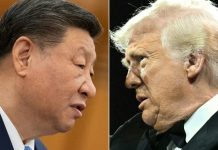Former chief of Pakistan’s Inter-Services Intelligence (ISI), Lt. Gen. Asad Durrani (retd), has been interacting with the Indian spy agency RAW since 2008, the country’s Defense Ministry said urging the Islamabad High Court not to remove him from the Exit Control List (ECL).
Haqqani Network Hand In Glove With Al-Qaeda, May Have Formed Joint Unit — US Document
In its response to Durrani’s petition in the high court, the ministry mentioned that he was involved in anti-national activities. Subsequently, the former spy chief has been barred from leaving the country, the ministry said.
However, Durrani has denied the allegations several times in the past.
It is pertinent to mention that he had written a book with AS Dulat, the former head of the Indian intelligence agency RAW, which, according to Pakistani officials, included material related to Pakistan’s national security. The government of Pakistan had added the former ISI chief to the ECL on May 29, 2018.
The publication of the book, titled The Spy Chronicles: RAW, ISI and the Illusion of Peace had created a furor in the country with the military summoning Durrani for an explanation at the time.
Durrani had filed a writ petition in the Islamabad High Court against the government’s move, seeking his removal from the ECL. The high court’s Chief Justice Athar Minallah had sought a reply from the government on the petition.

The Ministry of Defense claimed that the former spy chief had been “interacting with hostile elements”, besides RAW, since 2008, and was likely to be involved in future publications against the interest of Pakistan. It said the examination of the book The Spy Chronicles revealed that it contained “certain contents concerning [the] national security of Pakistan, being in contravention of the provisions of the Official Secrets Acts, 1923.”
“It is further highlighted that there are [a] number of such publications on the way, supported by hostile elements which contain content to create misperception, confusions, question marks against the top leadership circles at country level and to target the common people,” reads the ministry’s response, as reported by Dawn.com.
The ministry contended that Rule 2(c) of the Exit from Pakistan (Control) Rules, 2010, authorized the federal government to prohibit a person from exiting Pakistan for a foreign destination if the said person is involved in “acts of terrorism or its conspiracy, heinous crimes and threatening national security,” the Dawn report said.
The ministry’s reply further stated that according to Articles 15 and 19 of the Constitution, the “freedom of movement and freedom of speech are subject to any reasonable restrictions imposed by [the] law in the public interest and integrity, security or defense of Pakistan”.
In response to the notice of the court, the ministry said it needed more time to conclude the investigation and that it was not possible to remove Durrani from ECL “at this stage”. The ministry is of the view that the former spy chief wanted to travel abroad to participate in international conferences, forums and talks which will have “serious national security implications as evident from the recently published book Honour Among Spies — another book by Durrani.
In an interview with the BBC last year, Durrani had said, “What good is a book if there is no controversy? It will then be a government version of writing that you take from the ISPR or from the government. You have to create controversy so that there can be debate.”
In response to the allegations of the book revealing state secrets, he had said, “There was a lot of noise, but no one has yet said what secrets of the state were actually revealed by the book.”
The 80-year-old former ISI chief has also served as a lieutenant general in the Pakistan army. He was appointed Director-General of Military Intelligence in 1988. In 1990, he was appointed as DG ISI. After retiring in 1993, he served as Pakistan’s ambassador to Germany and Saudi Arabia.
Durrani has often been the subject of controversy, whether it is about the information contained in his two published books or his statements about Osama bin Laden, which he calls his “analysis”.
Durrani was ousted from the army in the 1990s. After his name was mentioned in the Asghar Khan case, he was called to the General Headquarters from the ISI and then when it came to light again that he was allegedly interfering in political affairs, he was prematurely retired.
He was also involved in the formation of the Islami Jamhoori Ittehad party, formed against the PPP government in the 1990s, in which he confessed to giving large sums of money to other politicians, including former Prime Minister Nawaz Sharif.




